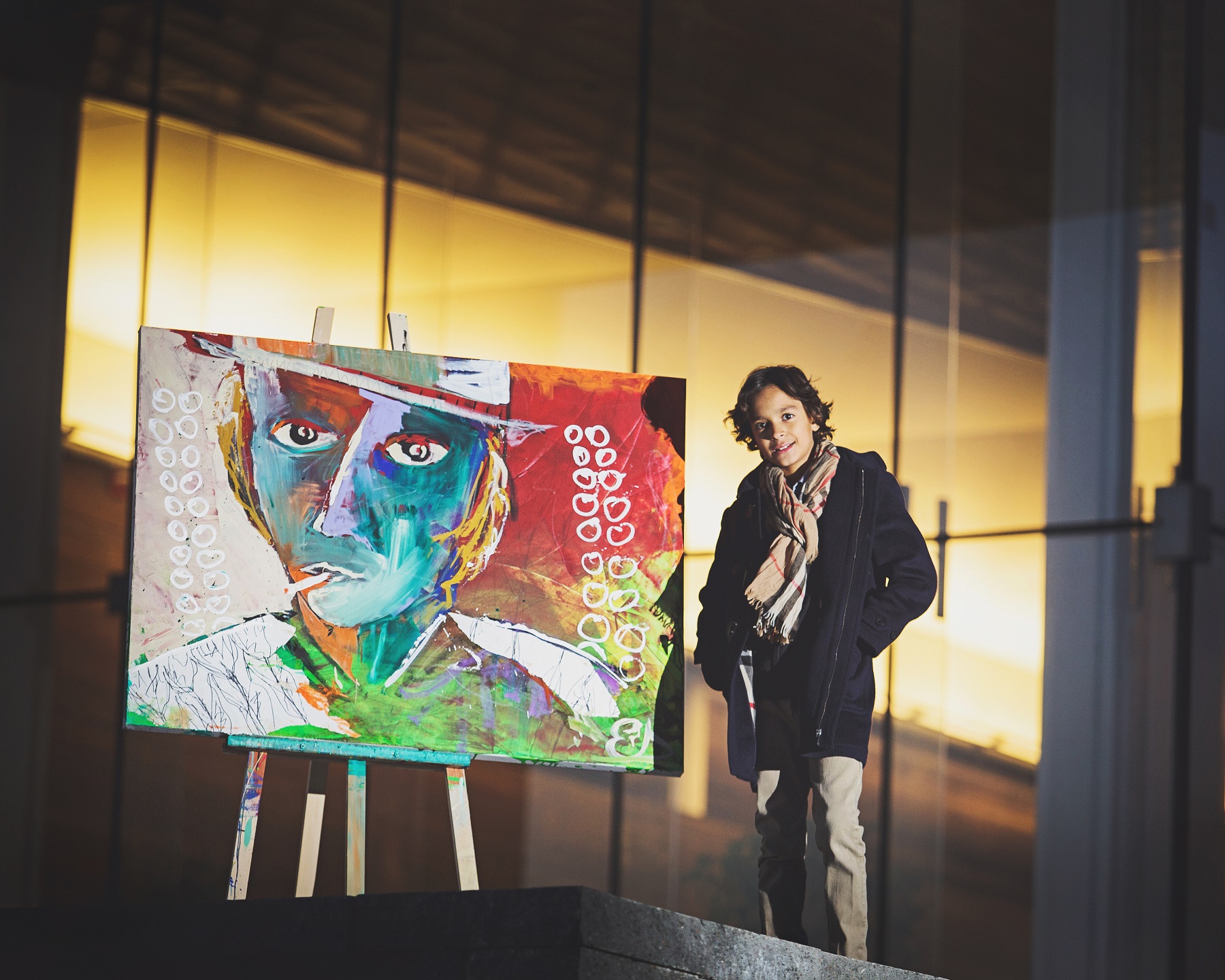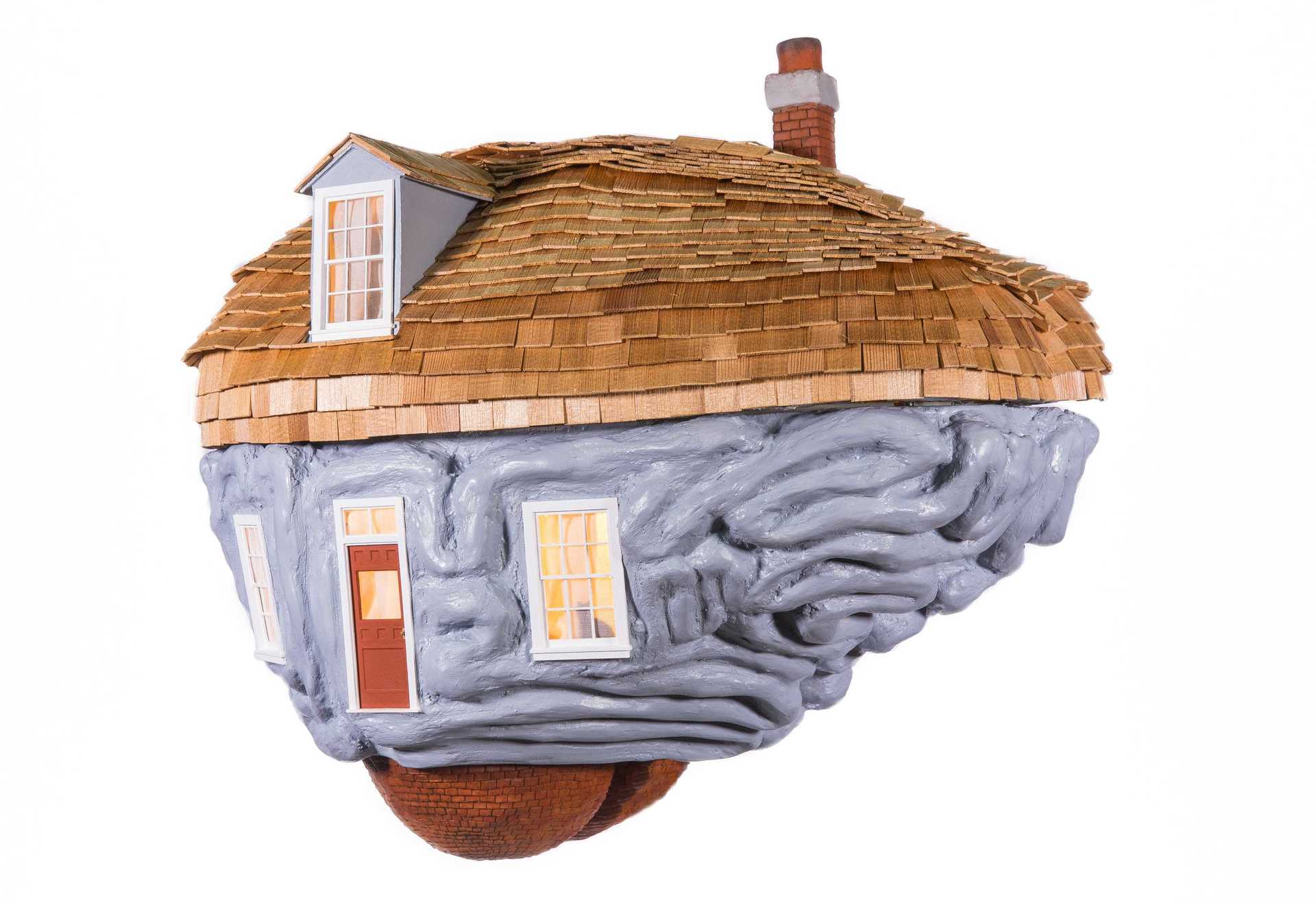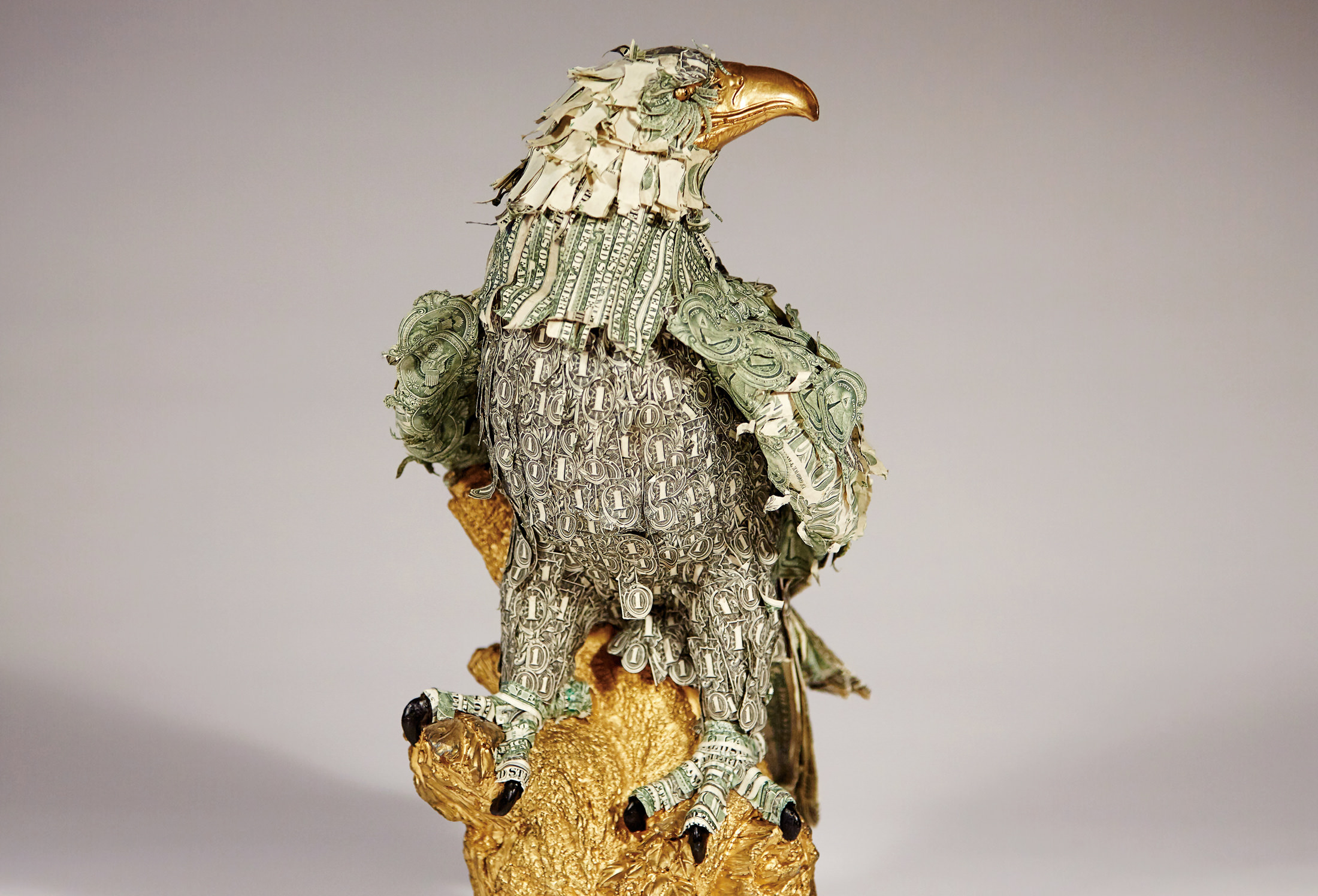Reclaiming Forms with Toronto Artist Quinn Rockliff
A woman to watch.
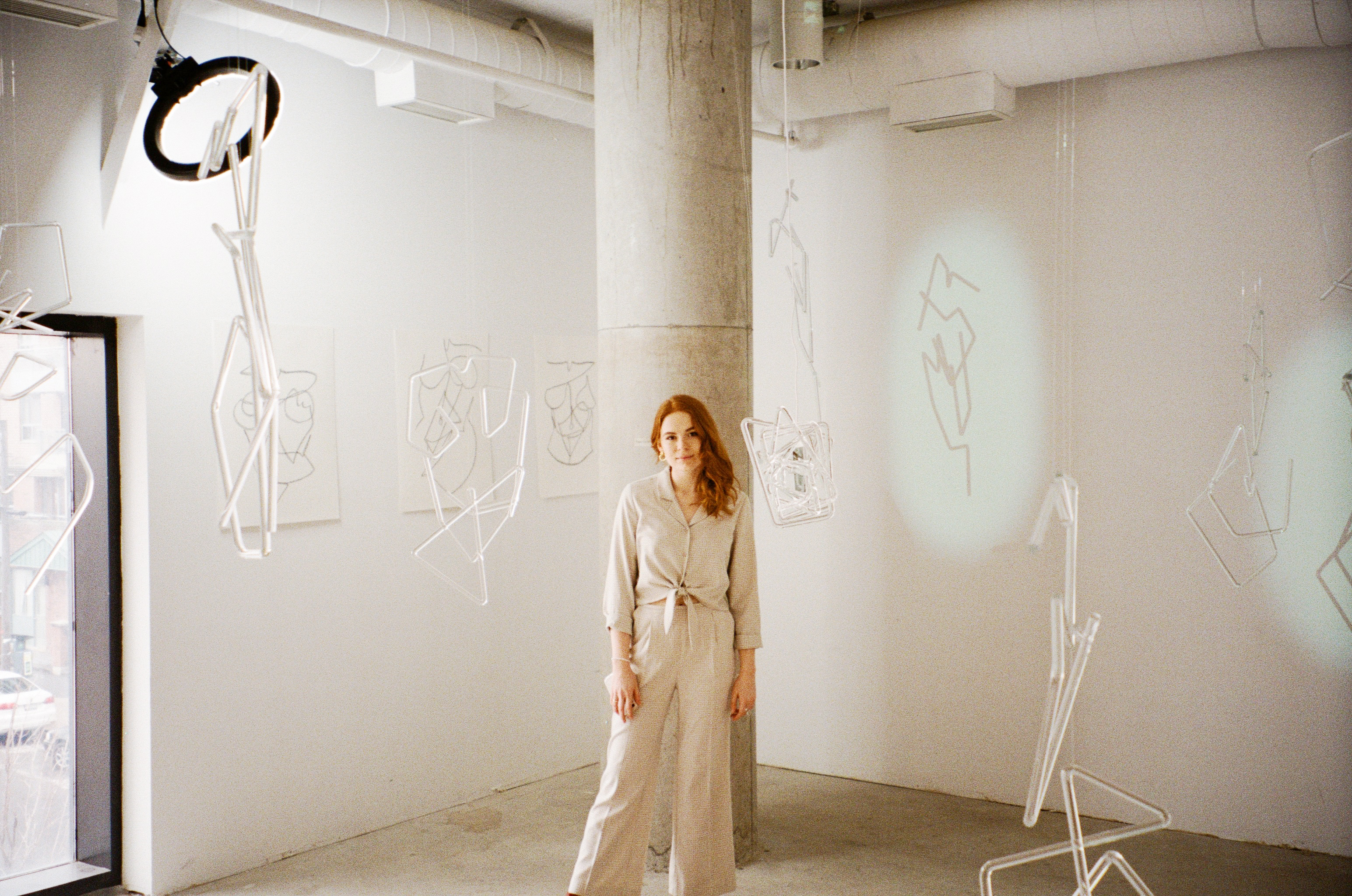
Quinn Rockliff is proving there’s power in vulnerability. After experiencing the trauma of sexual assault, she began drawing nude self-portraits in the privacy of her university dorm room. With no training or background in art, these loosely rendered abstract line drawings were strictly instinctual and therapeutic. “It was a way to reclaim my body,” the 23-year-old Toronto artist says five years later.
Feeling invalidated by real-life situations in which she was constantly questioned, challenged, and forced to recount and relive traumatic memories, she turned to the digisphere and began posting images of her artwork on Instagram. “I don’t know what gave me that confidence,” Rockliff says, “but for some reason they resonated with people.” Social media became a safe space for her to be seen and heard by others and to take charge of her own narrative.
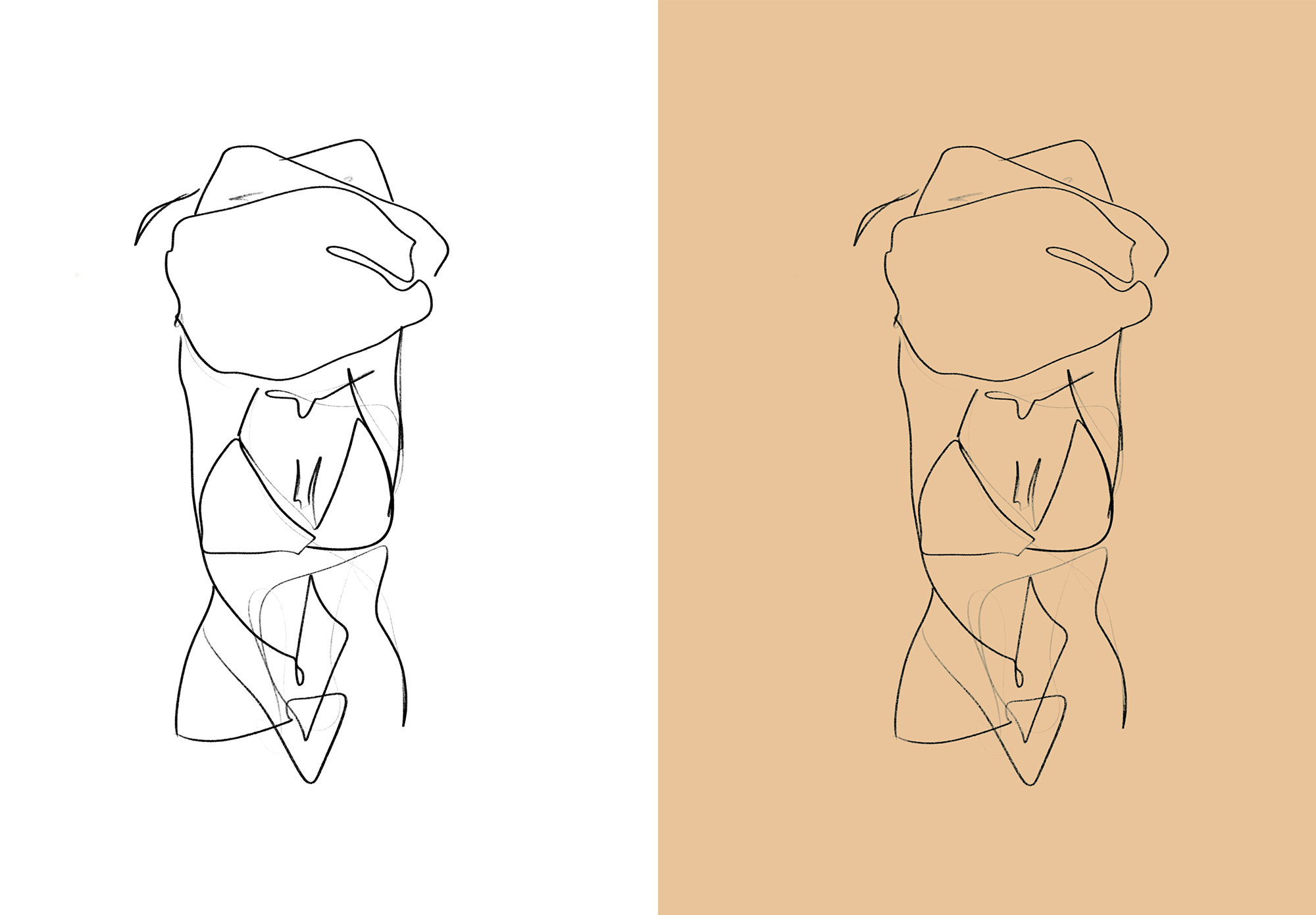
All Mine Not Yours.
Her artwork was quickly noticed, and she had to work backwards, teaching herself to paint and draw, and figuring out what exactly she was trying to say about sexuality, survivorship, body reclamation, and self-representation, all the while creating art for customers. She bought her first set of watercolours and within a month, she was receiving commissions. Individual client requests and portrait commissions led to bigger projects such as illustrations for a T-shirt collaboration between H&M and ReThink Breast Cancer and a mural inside Toronto female co-working space Make Lemonade; running a well-stocked online shop featuring prints and products kept her busy in between. “It’s definitely super exciting,” she says. “But it makes the imposter syndrome so much worse, because I genuinely don’t know what I’m doing.”
After graduating from Western University with a degree in media information and technoculture, the self-taught artist honed her craft by earning her master of fine arts degree at OCAD University. She graduated this spring, after producing a brilliant installation thesis project titled here:there, which explores the experience of existing simultaneously online and in real life—a simple, relatable, yet complex idea that Rockliff sums up as “virtual embodiment” versus physical embodiment. It also examines how she uses social media as a tool of body reclamation and self-representation.
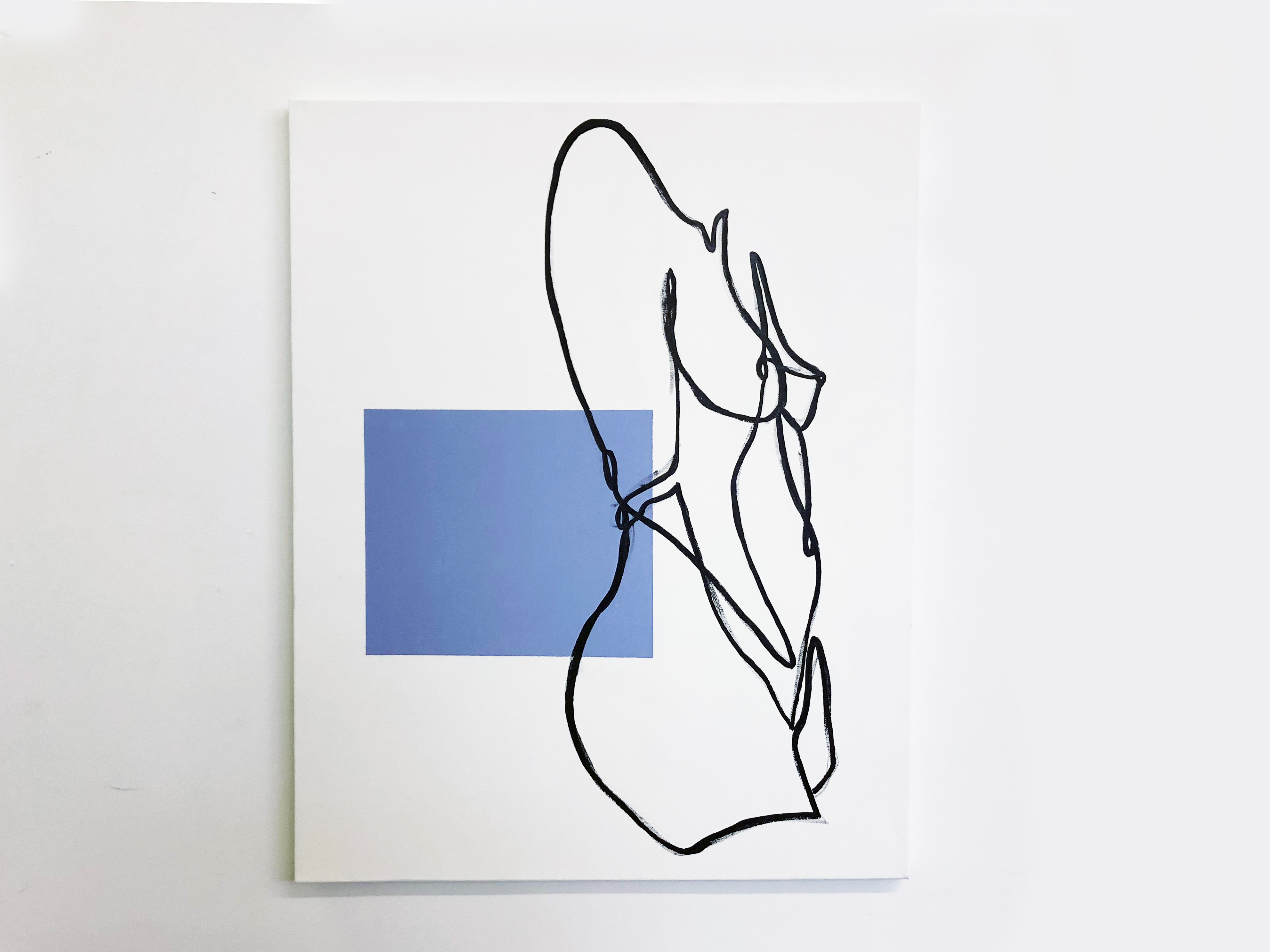
Untitled commission (2018).
Historically, nude images of women have primarily been created by men and thereby depicted through the male gaze. In choosing to depict herself, Rockliff is in control of how she is represented. It also allows her to explore her own unique, individual experience of survivorship without claiming authorship of this experience for all. It allows her to represent her own body without claiming to depict all women’s bodies. And the abstract style allows her to avoid the process of instant sexualization that traditional realist nude portraits have undergone.
Rockliff recognizes that the positive reception of her vulnerability online is a privilege not all people have. “For me, vulnerability is super empowering … but there’s also a lot of danger in that because as a white cis-gendered woman, I am more likely to be believed than somebody else,” she says. “I’m learning so much every day, and I feel like my work is truly just a documentation of me growing and realizing and working through things that I don’t have the words to articulate.”
After such a quick-paced start to her career, Rockliff is eager to take a step back and put in time at the studio, developing her art and growing in her understanding of the complex topics she tackles with her work.

Self portrait.
_______
Never miss a story. Sign up for NUVO’s weekly newsletter, here.

